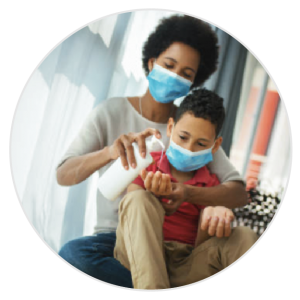Inequality is a public health crisis
By Carol Hymowitz
 At the outset of the Covid-19 pandemic, government and public health officials thought the virus would strike people equally, regardless of their wealth, power or race. Just the opposite has occurred.
At the outset of the Covid-19 pandemic, government and public health officials thought the virus would strike people equally, regardless of their wealth, power or race. Just the opposite has occurred.
In the U.S., those hardest hit by Covid-19 are minorities and immigrants who were already hurting because of racial discrimination and unequal access to healthcare, housing, jobs and financial security.
The overriding lesson of the pandemic is that inequality is a public health crisis.
African Americans are more than twice as likely as whites to die from Covid-19, according to an analysis of data from 40 states and the District of Columbia by the APM Research Lab. In some locations, the divide is far greater. In Michigan, African Americans account for about 33 percent of Covid-19 cases and 41 percent of deaths, even though they comprise just 14 percent of the overall population.
Black and brown Americans are less likely to have health insurance and more likely to have chronic illnesses, including heart disease, hypertension and diabetes, which puts them at higher risk for negative outcomes if they contract Covid-19. They’re more likely to live in crowded households, where it’s often impossible to isolate sick and at-risk family members. And they’re more likely to work in jobs that require close contact with others, which increases their risk of exposure to the virus.
These “essential” grocery and drugstore clerks, nursing-home aids, bus drivers and meatpacking plant workers have risked and, in some cases, lost their lives during the pandemic. At the same time, millions of minorities and immigrants who were employed in low-wage restaurant, retail and other service jobs have suffered steep layoffs and are apt to get left behind in the recovery, according to a recent report by the Economic Policy Institute. Few have savings to help them through hard times. The median black household had $18,000 in net worth in 2016, compared with $171,000 for whites.
The pandemic has laid bare yet another longstanding injustice in minority communities—police brutality. The killing of George Floyd, a black resident of Minneapolis who died after gasping for air under the knee of a white police officer, triggered protests in cities across the nation and around the world.
These are interrelated crises — “the crisis of racism and inequality that is now converging with the crisis of Covid-19,” according to Dr. Leana S. Wen, a public health professor at George Washington University and the former health commissioner of Baltimore who testified recently in Congress.
Unless policymakers do more to address the disparate impacts of the virus, the U.S. is likely to become even more unequal—and remain that way long after the pandemic is over.
Stanford Center on Longevity’s New Map of Life initiative is analyzing how traditional models of health care, education, work and family and community structure must change so that everyone can enjoy healthy longer lives. There are myriad policies that would make a difference. Among these: investments in education, starting in early children and continuing throughout adulthood, better housing and transportation infrastructure, more preventative health care and more widespread access to it, workplace redesign and job retraining programs and criminal justice reform.
The economic, social and political efforts required to bridge the wealth and race divides are enormous, but we can’t afford not to undertake them. Only when our policies start to work better for those who’ve been left behind will everyone’s health and wellbeing improve.
 Carol Hymowitz is an author, journalist and visiting fellow at the Stanford Center on Longevity.
Carol Hymowitz is an author, journalist and visiting fellow at the Stanford Center on Longevity.


